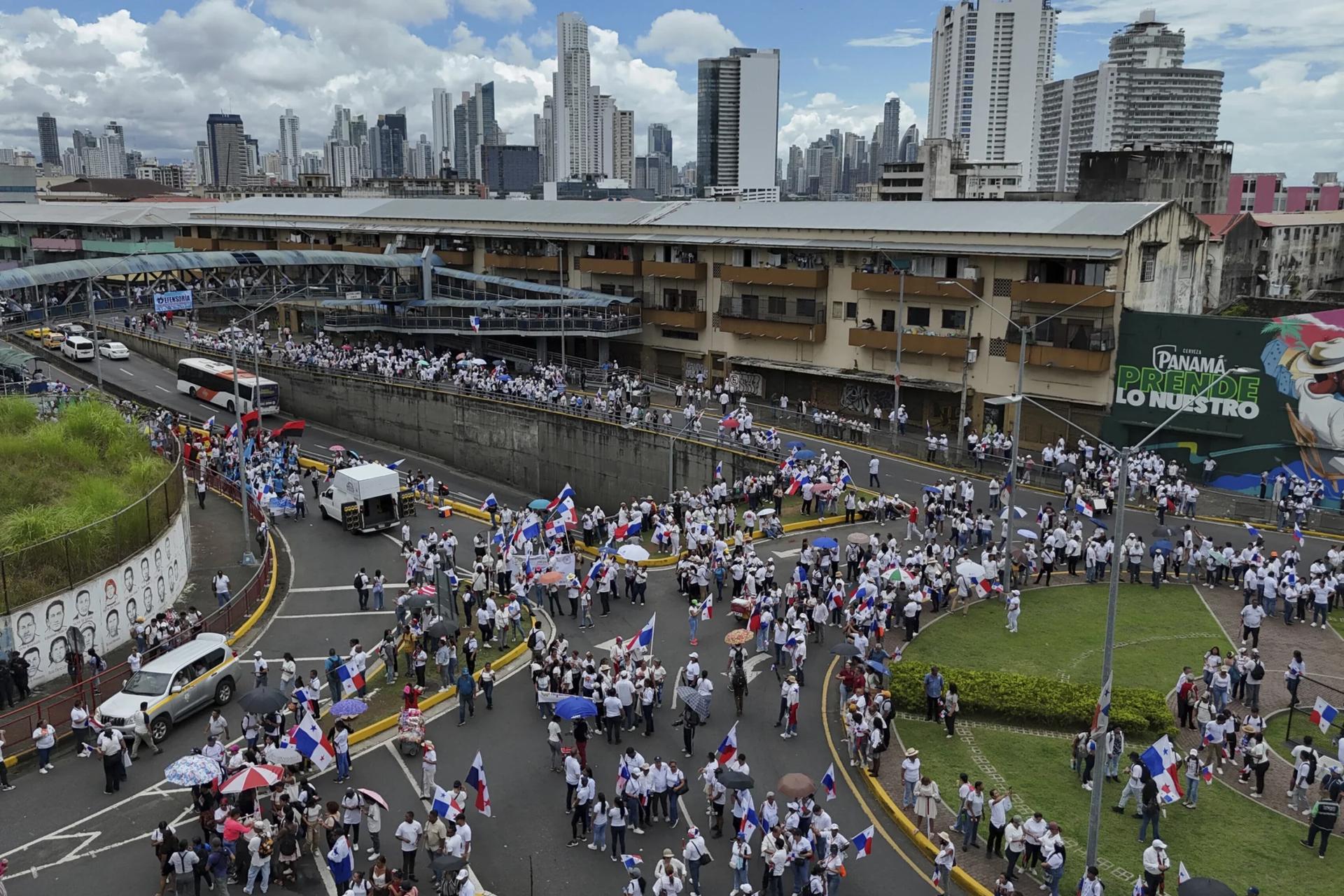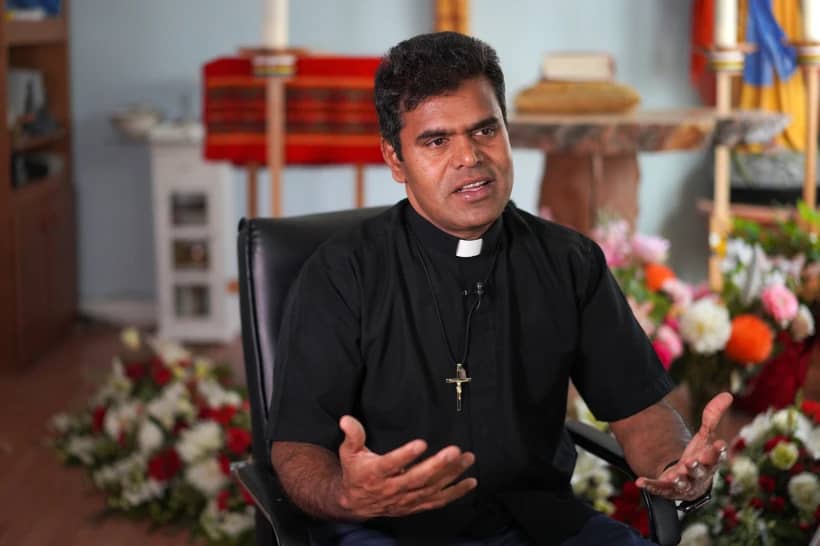SÃO PAULO, Brazil – A social explosion in Panama, where continuous protests against the government have been gathering more and more people over the past few weeks, has led the Church to publicly call for dialogue and peace, appointed as immediate conditions for potential solutions to emerge.
Demonstrators all over the country have been demanding the revocation of a law that changes the pensions system, considered especially negative for the younger generations. After the teachers launched the initial manifestations, other professional categories have been joining them, including nurses and construction workers.
The popular rage is also directed to a memorandum of understanding signed earlier this year by Panama and the United States. The agreement allows the U.S. to deploy a limitless number of personnel to military bases in Panama. President Donald Trump boasted that with that memorandum he recovered the Panama Canal from the Chinese, whose presence in the Central American country had been growing.
Another fundamental reason for the demonstrations is the government’s plan to reopen a copper mine which had been exploited by a Canadian company. The administration of President José Raúl Mulino argues that it’s a much-needed move for the Panamanian economy, despite the fact that an act in 2023 outlawed that operation and the concession of new metal mining endeavors.
Over the past weeks, the protests have been growing substantially, with the participation of new social segments and the addition of new causes of dissatisfaction concerning the government.
On May 6, for instance, a massive march brought together thousands of students and professors of the University of Panama, which had been a constant target of the Executive power, especially of the national police director, Jaime Fernandez. On several occasions, he said that the university works as a political base for conspirators. Fernandez even asked the rector to implement controls of entrance in the campus, something that was repudiated by the university.
“On May 1 [when the country celebrates the Worker’s Day], protests were equally strong all across the country, with the mobilization of several labor unions,” Maribel Jaén, director of the national Caritas and of the Justice and Peace Commission, told Crux.
Jaén argued that the problems were not necessarily created by the current administration. In her opinion, the “neoliberal economic model adopted by Panama years ago, based on the gains generated by the transit of people and goods due to its strategic location, has been exhausted.”
“Initially, the idea was that permanent vectors of development connected to the agribusiness and industries would be implanted side by side with the transit model. But it has never happened. Now we have half of the people working in the informal economy and 10 percent of unemployment, with a growing poverty rate,” Jaén explained.
The crisis has produced social unrest in 2020, when people took to the streets against a Constitutional reform, in 2022, when there were massive protests due to the high prices of medicines, food, and gas, and in 2023, against mining.
“The conducting wire was always the people’s impoverishment and frustration with the government,” she said.
The pensions reform announced by Mulino was received by many as the end of a basic policy of social security in Panama, something that will especially impact the youth in future decades, Jaén said.
The president’s alignment with President Donald Trump, expressed in the memorandum of understanding, was also noticeable when he accepted to receive flights with immigrants and refugees deported from the U.S. without any previous planning.
Now, dozens of people from Asian and African countries are being precariously kept in Panama, most of them hosted by the Catholic Church and other Christian denominations, while they figure out what to do – as they can’t go back to their countries of origin for security reasons and are not allowed to remain in Panama for more than 90 days.
“Those actions have been seen as violations of the Panamanian national sovereignty,” Jaén said. The Church keeps accompanying not only the deportees, but also the immigrants who come from South America and cross the Darien Gap in order to move northwards, she added.
Amid the widespread crisis, the Church has been calling the people to build bridges and try to dialogue, “something that’s fundamental for the country if it wants to leave the current chaos behind,” Jaén added.
On May 4, Metropolitan Archbishop José Domingo Ulloa Mendieta of Panama called the people to build “bridges of encounter, and not walls of division.”
“Panama needs a sincere commitment of all good-willed men and women,” Ulloa said during his homily. The reconstruction of the country must begin with “simple gestures, just words and the real will to listen to one another,” he added.
Jaén said many social and labor leaders are Catholic and see the current unrest as a struggle for social justice.
“The government chose to promote a violent campaign to discredit them and thought it could control the manifestations with the use of force. But those leaders must be heard,” she told Crux.













